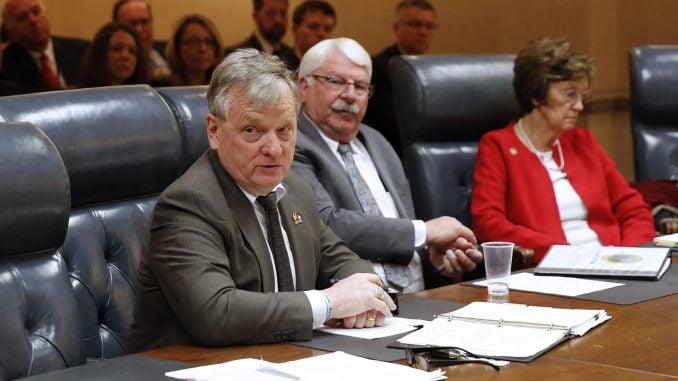
RALEIGH Upon his election to state treasurer of North Carolina, Dale Folwell pledged to get to work immediately looking for ways to save the state money and apply his realist attitude to the management of the N.C.’s investment funds.The former motorcycle mechanic and accountant had spearheaded a similar challenge as secretary of the N.C. Department of Employment Security in the administration of Gov. Pat McCrory, steering implementation of unemployment insurance reforms that enabled the elimination of billions in debt to the federal government ahead of schedule. Through the first five months of his term, Folwell is bringing a similar level of determination to the Office of State Treasurer.Since entering office in January, Folwell said he has contacted more than 150 money managers representing 99 percent of the state’s pension plans assets and asked them “who they are, how much money they manage, how well they perform, and how much they charge in fees.”So far, he has been able to cut $25 million in fees en route to meeting his campaign pledge to cut $100 million before the end of his first term.”The fees cut so far are the floor, not the ceiling,” added Folwell.While cutting fees helps move the needle toward efficiency goals, the other side of the ledger must be addressed as well. But that is often a harder pill to swallow for current and to-be pensioners. In late April, Folwell announced a lowering of the rate of assumed investment returns in the N.C. Retirement Systems Funds from 7.25 percent to 7.20 percent.According to Folwell, the fund has not earned its assumed rate of return of 7.25 percent on average for the last 15 years. For the calendar year ending Dec. 31, 2016, the fund reported a return of 6.3 percent.”The North Carolina General Assembly has fully funded the state’s pension plans, putting them on a solid footing,” said Folwell. “However, because the projected rate-of-return has not been met, we must begin taking gradual steps toward reflecting the actual historical rate. Doing this will provide the best opportunity to meet the state’s long-term obligations as well as maintain its AAA bond rating.”Folwell explained that expected rates of returns were set years ago when interest rates were far higher, and have not adjusted to the steady decrease in rates over the years culminating in the near zero rate environment implemented during the 2008/2009 financial crisis.”When interest rates were high, it was relatively easy to make your assumed rate by just investing in low-risk bonds,” added Folwell. “Since we have been in an essentially zero interest rate environment for the past 15 years, achieving that same rate in the future is unrealistic.”However, the low interest rates have a silver lining as they allow for cheaper financing of existing debt. Folwell announced last week that the N.C. Council of State approved the issuance of up to $150 million in General Obligation Refunding Bonds as well as up to $300 million in Limited Obligation Refunding Bonds.The bonds will be used to refund outstanding obligations to take advantage of lower interest rates, thus reducing financing costs for taxpayers. While the exact amount of savings will be determined when the bonds are sold, according to Folwell it could be in excess of $50 million depending on interest rates at the time.”When interest rates decline, many decide to refinance the mortgage on their house. The state is taking this opportunity to do the same,” said Folwell. “As treasurer, I will continue to monitor these opportunities and look to save taxpayer money wherever we can.”The bonds to be refunded were used to finance a variety of projects around the state. Sale of the bonds is anticipated for mid-to-late July 2017.Along with the belt-tightening efforts, another financial development has acted as a wind at the treasurer’s back: the stock market has been registering new highs on a mixture of U.S. policy optimism and central bank largess, adding to a year of resilient gains despite myriad unexpected geopolitical events. That has helped the state’s investment funds perform well.Through the first quarter of 2017, the fund comprised of the retirement plans the Department of State Treasurer manages reported gains of 4.1 percent, and nearly 10 percent over the last 12 months ending March 31.”Our public equity portfolio did especially well during the first quarter of this year,” said Folwell. “But fixed income continues to lag due to historically low interest rates.”



